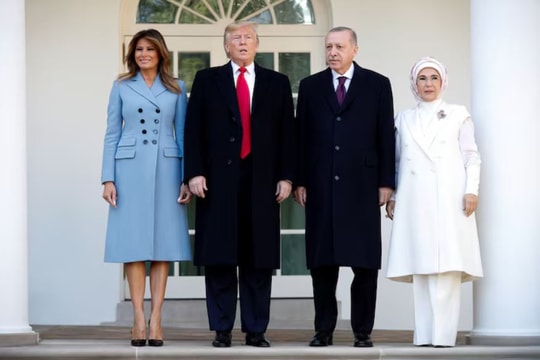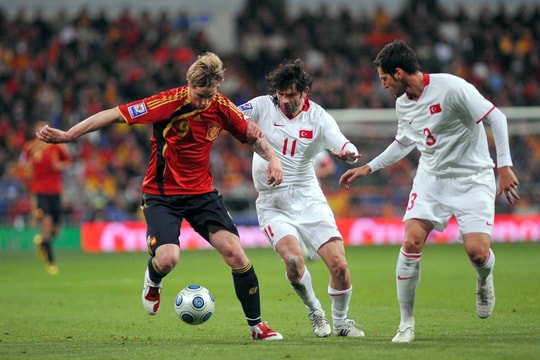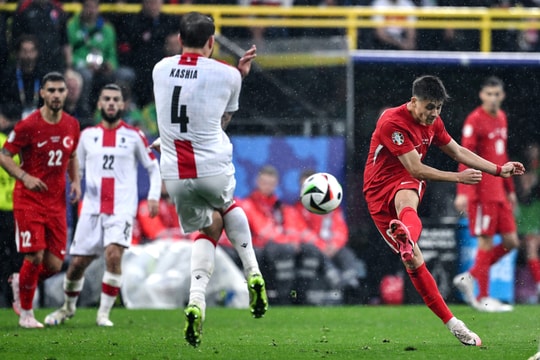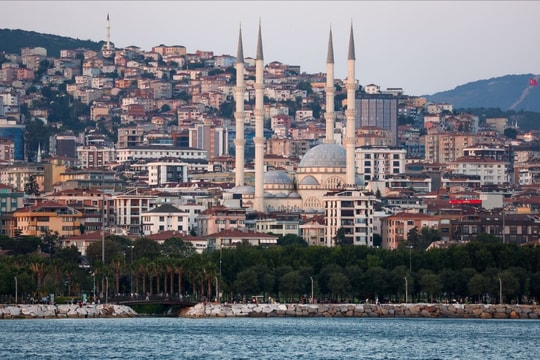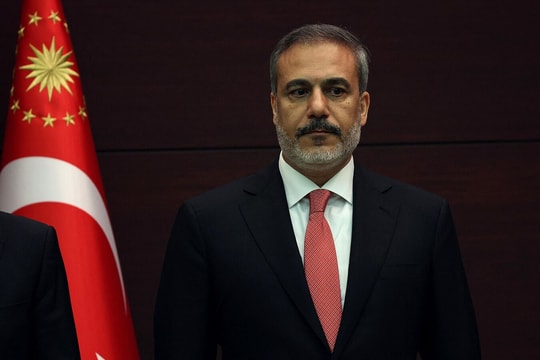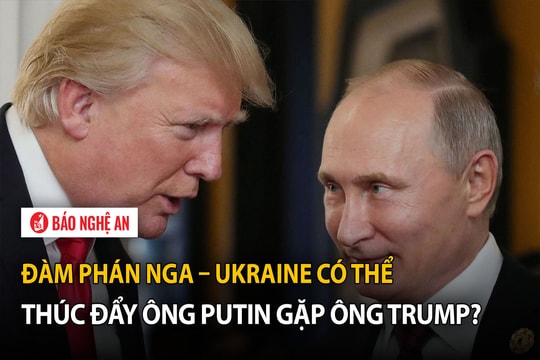Turkish President's ambitions after decision to attack Syria
(Baonghean) - Exactly 8 years ago, Asia Times published an in-depth analysis that Türkiye was the big winner in the “Arab Spring”. There will be many more events related to the “Arab Spring” and Turkey’s role in the Middle East, demonstrating Recep Tayyip Erdogan’s great ambition to turn Turkey into a new Ottoman empire. Now, it seems that all developments are proving that assessment correct. Türkiye’s military campaign against Northern Syria is said to redraw the country’s war map, a step that will help Ankara establish its ambitions in the Middle East Muslim world.
THE WAR "SOON OR LATE"
Attacking Kurdish forces on the Syrian border has been a decades-long goal of the Ankara government. Since Mr. Erdogan came to power as Prime Minister, the Kurdish Democratic Union Party was also established and has become a “thorn” in Ankara’s side. This group advocates the establishment of an independent Kurdish state and claims to support a doctrine called “Democratic Confederacy,” based on the ideology of the founder and leader of the Kurdistan Workers’ Party (PKK) Abdullah Ocalan, the opposition party to the ruling AKP. Since then, Turkish President Erdogan has vowed “never to allow the establishment of a Kurdish state in northern Syria” and has labeled the group a terrorist force.
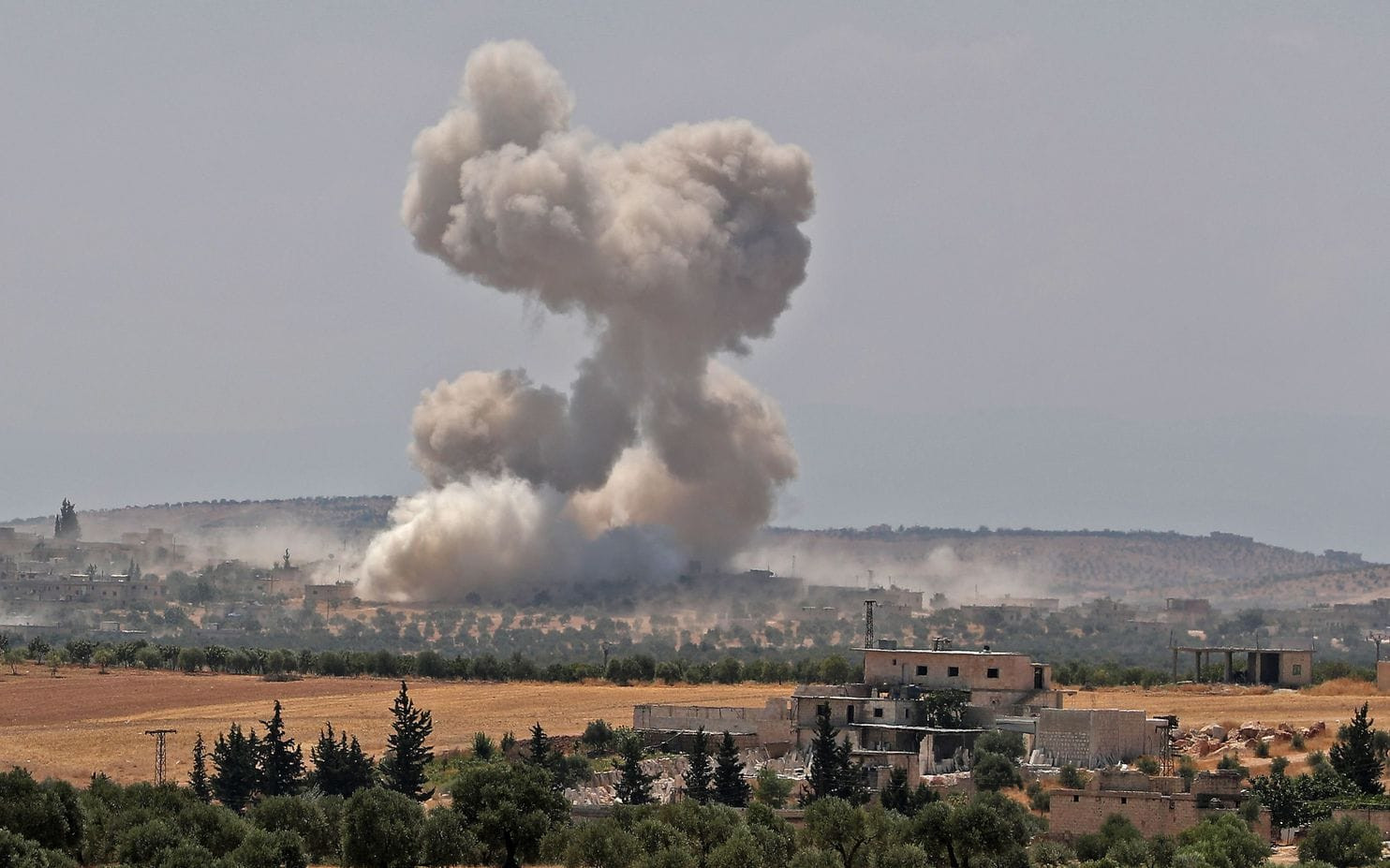 |
| Türkiye opened fire on Kurdish forces in northern Syria on October 9. Photo: Washington Post |
Operation Euphrates Shield in 2016 or Olive Branch in 2018 was intended to attack IS in northern Syria but in fact also pushed Kurdish forces out of the northwestern region of Afrin. Tensions have continued since then, with Türkiye determined to launch a full-scale conflict to eliminate the Kurdish presence in the rest of northern Syria.
The launch of the offensive campaign in northern Syria on October 9 was in the Erdogan administration’s anticipation and preparation. Before the attack, the US President announced the withdrawal of troops from Syria – considered a move to “green light” Ankara’s campaign.
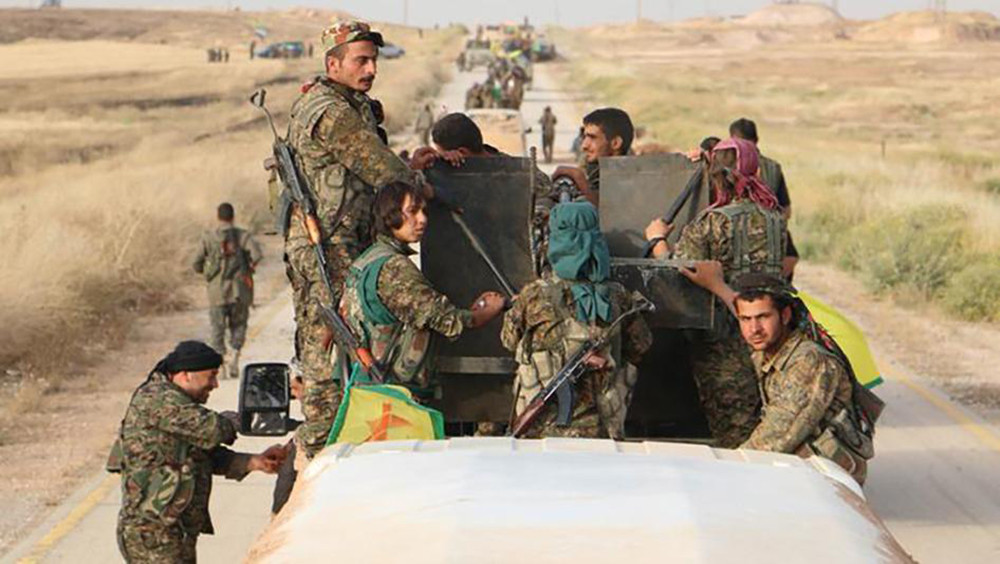 |
| Kurdish fighters in northern Syria. Photo: Reuters |
President Recep Tayyip Erdogan has said the goal of the operation is to “destroy the terror corridor” that Kurdish militias are trying to establish on Türkiye’s southern border and bring peace to the region. Another reason for Türkiye’s military operation is to expel Syrian refugees from Turkey and resettle them in a so-called “safe zone” it is creating in northern Syria. Turkey has the world’s largest refugee population, and the presence of Syrians in the country has increasingly drawn hostility from Turks who accuse it of crime, unemployment and the dilution of Turkish culture. To counter rising xenophobia, Erdogan has promised to relocate two million Syrians to Kurdish-controlled areas, even if they are not from there.
However, that is not all. “Wipe out” the Kurds also means that Türkiye can expand its territorial control on the border with Syria, increasing President Erdogan’s position at home.
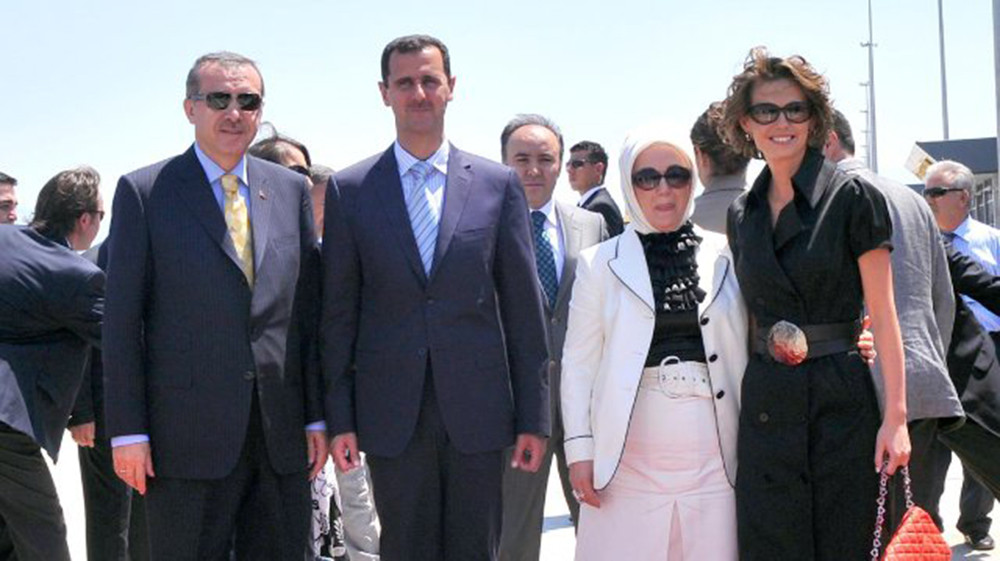 |
| Turkish President Recep Tayyip Erdogan (left) once considered the Syrian President a “close friend”. Photo: Getty |
MR. ERDOGAN'S AMBITION
Many analysts say that the way Mr. Erdogan pursues the military campaign in northern Syria partly reflects his political approach: decisive and tough. Recep Tayyip Erdogan is the most obscure and longest-serving politician in Türkiye's 96-year history.
He is seen as radical, populist, and resourceful. Many observers describe Erdogan as hot-tempered. He has grabbed a cigarette pack from a civilian to try to force him to quit, scolded reporters for asking difficult questions, and even stormed out of the audience after an angry discussion with Israeli President Simon Peres at the World Economic Forum in Davos in 2009. But he is also an extremely patient politician. It has taken Erdogan 16 years to forge what he calls “the new Türkiye”—an economically self-sufficient nation.
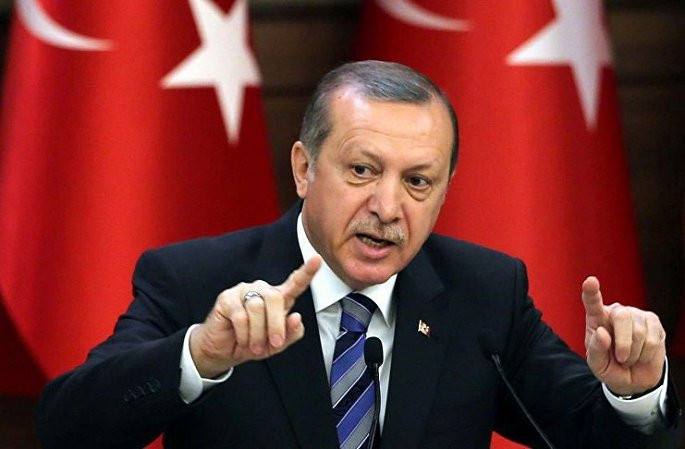
President Recep Tayyip Erdogan is the most enigmatic and longest-serving politician in Türkiye's 96-year history. Photo: Getty
This mix of hot-tempered and patient personalities has made Erdogan increasingly successful in politics. He became Prime Minister in 2003 after his party won 34% of the vote, and by 2011, that had dropped to just 50%. In 2014, when Erdogan ran for president, more than half of Turks voted for him. They did so again in 2018, also voting in favor of amending the constitution to give the president ultimate power.
He has also used that power to reshape Türkiye’s relationship with the rest of the world, expanding Türkiye’s influence in Syria and northern Iraq and shifting away from the West and toward China, Iran and Russia.
Mr. Erdogan's controversial decisions in both foreign and domestic affairs, despite facing a lot of criticism, still receive support from a large part of the country.
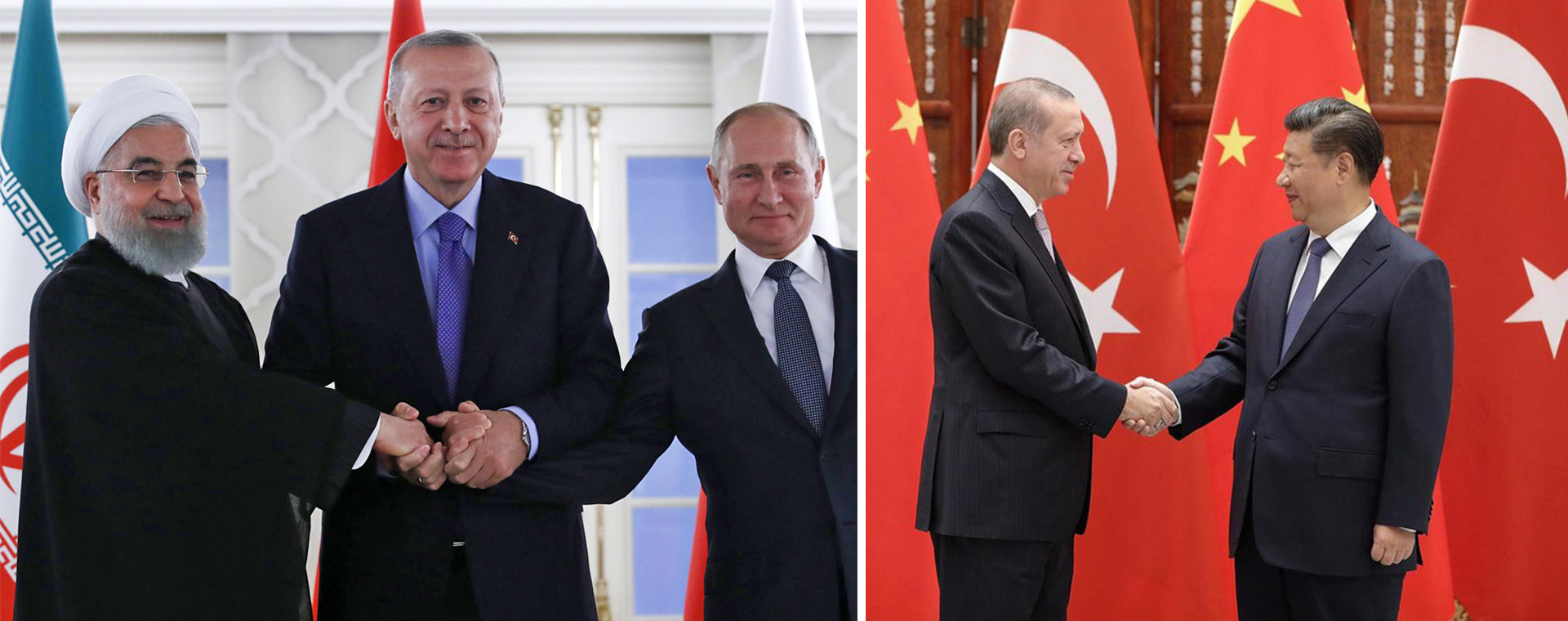 |
| Turkish President shifts to "shaking hands" with China, Iran and Russia instead of Western countries. Photo: AFP - Reuters |
With the decision to send troops to attack Northern Syria, Mr. Tayip Erdogan once again became the center of attention on the international political stage. Many countries criticized the decision of this 65-year-old leader and said that Türkiye's "invasion" of Syrian sovereignty was "unacceptable". Explaining Ankara's actions, many observers said that, like US President Donald Trump with the slogan "Make America Great Again", Mr. Erdogan's ambition is to restore the influence of the ancient Osman Empire, far surpassing Antatuerk, who founded the current Turkey and equal to Sueleyman, who founded the Osman Empire in the 13th century.
As the civil war in Syria is coming to an end, and the US is gradually withdrawing its presence in this country, Türkiye quickly seized the opportunity to "redraw the map of the Syrian conflict once again" as an active party. This is also a step by Ankara to establish a larger position in the Islamic world in the Middle East.
For domestic public opinion, the decision to attack the Kurds is believed to have a strong impact in stirring up nationalism in Türkiye, helping to increase Mr. Erdogan's position and authority.
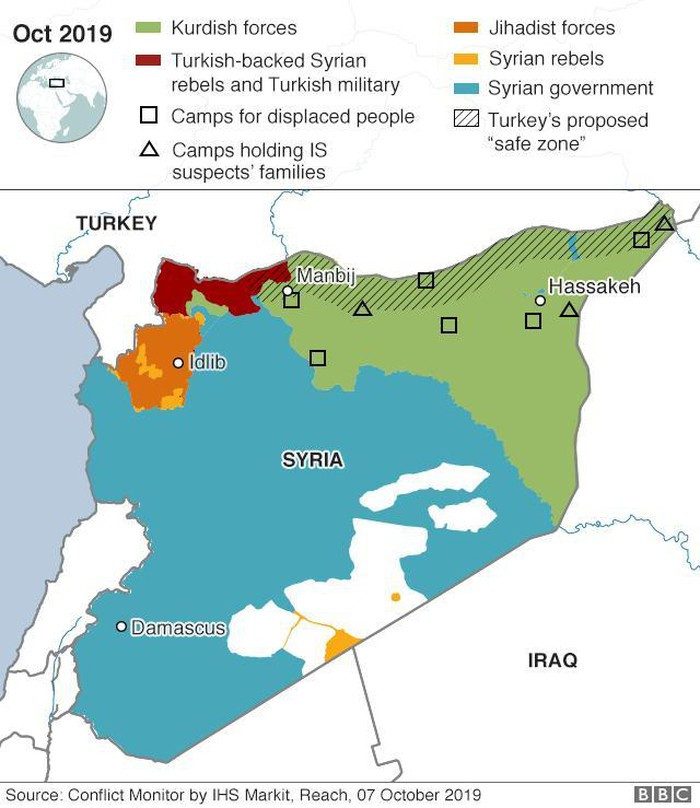 |
| The map shows the situation in Syria, in which the crossed-out area is the safe buffer zone that Türkiye wants the YPG to withdraw from, the red area is occupied by pro-Turkish rebels, the green area is controlled by Kurdish militias and the blue area has been liberated by the Syrian army. |

